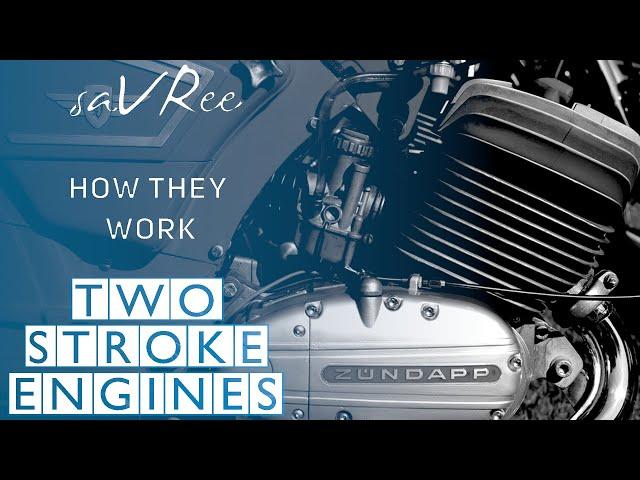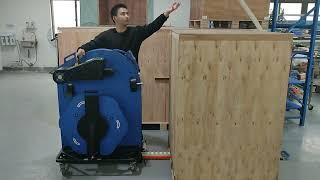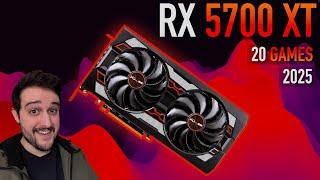
How Two Stroke Engines Work (How It Works - 2 Stroke)
Комментарии:

Not even this beautiful tutorial does explain what pushes the piston upwards once the engine is already running. None of the turorials I've seen explains that.
Ответить
Suck, squeeze, bang, blow. Wow.
Ответить
Hi everyone, I am looking for a diagram or an explanation of the 2 stroke engine that was used in motor bikes for racing. The engine has 1 or 2 exhaust valves that shut off to hold more in the compression stroke. This is different to the power valve. Thank you
Ответить
Great video and explanation. could you please explain why we need to mix oil with gas (petrol) in two stroke engines?
Ответить
Suck, Squeeze, Bang, Blow. Hmmmmmmm
Ответить
So glad you covered the inefficiency-- key to understanding, especially the loss of air-fuel during the intake stroke.
Ответить
Best job of all
Ответить
When the AF mixture is in the crank case, is it primarily liquid or gas?
Ответить
Very informative video and well explained. First time I have understood a 2 stroke
Ответить
Thanks
Ответить
Thank you so much for this! I just have an individual project starting at uni involving improving a two stroke engine, and this really helps! TYSM!!
Ответить
As much power as they create, it seems that there are places where there are wasted potential.
Ответить
Any one here from elphin cc
Ответить
Thanks!
Ответить
Best explanation !Thanks
Ответить
So the crank case is bathed in petrol and a small amount of oil, rather than lubricated just through oil?
Ответить
"It's applications", "It's main applications". No. No apostrophes. It matters. Please don't help to destroy our English language. I do like the videos and I love engines.
Ответить
when the piston is at BDC both the scavenge port and exhaust port are open. Can anyone explain how unburned air fuel mixture which is coming from the scavenge port into the combustion chamber is prevented to escape out from the exhaust port??
Ответить
Thank you and Well done............Any plans to entend to the carb and reed valves ?
Ответить
The best video about engines that I have ever seen.
Ответить
Very detailed and complete. Excellent work. Liked and subbed
Ответить
Question. When the air mixture is going in, it goes to the bottom but is the transport port open when the air mixture is going in? Because if it is wouldn't the air mixture being wasted?
Ответить
nice explanation thank you this helped me a lot
Ответить
Will not fuel mix with lubricating oil?
While moving from suction port to transfer port...

High pressure vs low pressure...
Ответить
¡Excellent! I remember an Auto Union ( the brand that eventually became Audi) when I was a child had a two-stroke engine (motor de dos tiempos) and there were many on the streets. It uses a mixture of petrol and oil so its combustion should be carefully controlled to meet today's enviromental standards. I don't know if TS bikes are still manufactured
Ответить
Where can I️ learn to build , improve, and work on two stroke engines ? I’m mechanically inclined and very well educated about tools and mechanics but I️ don’t know how how build engines. I️ want to learn to tune, improve , and rebuild . I️ want to be a master not saying over night.... it’s my passion though does anyone have any advice on how to start or where to start ???!? Any tips or advice
Ответить
Is there lubrication in crank shaft chamber? It will mixed with fuel and air
Ответить
Well done, I 'scribed and Liked to help the channel although honestly I'm just seeking some quick remedial-overview, am familiar with/use timing wheels and port my engines well most of them, anyways they're all chainsaws and I found something fascinating / confusing / conflicting in your presentation here (not saying you're wrong, you're certainly not*, just saying it makes me unable to understand something chainsaw-porters do), you conceptualize the '4 phases' so well and I knew/understood the powerstroke (downstroke of piston) however, in chainsaw-porting, one of the most-common tricks/moves people do is to literally go and raise the exhaust roof with a dremel to 'decrease its timing' (ie if OEM spec had the exhaust port cracking at 110 ATDC, someone grinds/dremels their exhaust roof higher so that now it's cracking open at like 105* atdc, 98* atdc etc.) Would love to know your thoughts on this - I have engines ported this way - it does seem to work but I just don't get how*, I mean I can understand the old thinking of "higher exhaust roofs mean higher RPM but *some drop in torque", that's how chainsaw guys talk about it, but in understanding the 2-stroke better I can't help but think that it's not "a fair trade" IE the increased RPM is accompanied by a proportionately-larger loss of torque in the engine. Would love your thoughts on this!!
The other main approach is to CNC the cylinder base, and the squish band, to effectively drop all the ports' heights (and increase compression, or 'dial it in' since the #'s cut are chosen by "squish" or the amount a piece of solder gets squished in-between the piston & the squish-band, in chainsaws people just jam solder in 1 side and test that way....I know it doesn't account for piston-rock, I also do measurements from base-to-band now to accompany my squish #'s -- surprise, surprise, there is less variance reflected in "squish #'s" than in true measurements of base-to-band, obviously because piston-rock is "smoothing out" things a bit!)
Thanks a ton for such a great presentation here, have watched several of these hoping for "aha's", lol, and the way you put "the 4 phases" (intake/compress/power/exhaust, repeat!) totally helps me with putting things in perspective!!

Great video, thank you!
Ответить
In America,we refer to the natural breathing of a 2 cycle engine,as SCAVENGING!
Ответить
As you stated the fresh air& fuel charge are responsible to scavenge or push out spent gases/ exhaust!!
Ответить
What causes the piston to move back up instead up remaining in the down position after explosion?
Ответить
Worst video. Doesn't explain how the oil/gas mixture lubricates the crankshaft and bearings of connecting rod etc. which is why I was watching it. Doesn't explain how and when the vacuum is produced to draw in the fuel /oil mixture into the crankcase. Nothing I wanted explained was explained.
Ответить
Awesome animation and explanation!
Ответить
Impressionante a tecnologia de um motor à pistão e seu mecanismo. E lá se vai quase um século e meio de sua invenção.
Ответить
I wonder why two strokes is used on big ships, where weight shouldn't be THAT much of an issue, but efficiency seems to be the most important.
Ответить
When the piston comes back up are you losing some of the air/fuel mixture out of the exhaust port before compression above the exhaust port?
Ответить
that is why we have to put lubrification oil mixtured with the gasoline.Because the fuel go in the crankcase and it needs oil to reduce friction.
Ответить
at the moment of combustion chamber compression... the outlet point is opened... why not some air fual mixture escaped that way when piston is returning to top end??
Ответить
Great thanks.
Been maintaining my 4-stroke engines for years, but have never touched or even ridden one of these.
Seems these would be lower maintenance than a 4-stroke.

This is only half the equation in modern 2 strokes. The expansion chamber(exhaust) is responsible for making the big power of a modern 2 stroke. Without an explanation of how the engine and expansion chamber work together, you're not getting the full view of how a 2 stoke works.
Ответить
Nice explain tq sir
Ответить
The best video I have seen . Very well explained. Well done.
Ответить
Very well explained. Thanks.
Ответить
Thanks😊
Ответить
just a quick question do you guys call it only the power stroke because in canada we say combustion stroke
Ответить
Yes, it helps a lot.
Ответить

























